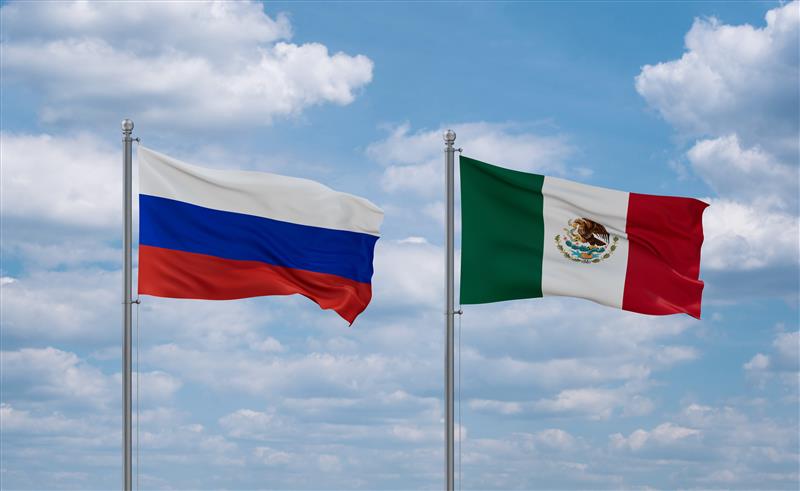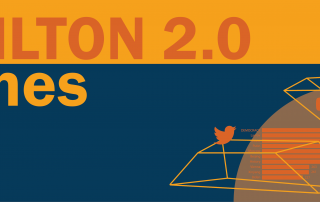Authoritarian regimes and their proxies use social media, other online information platforms, and traditional media to attempt to shape global and domestic narratives; to sow chaos and confusion in democracies; and to undermine democratic processes. Find ASD’s work on the many ways malign actors manipulate information to interfere in democracies, including by spreading disinformation, on this page.
Propaganda, Politics, and War: Information Manipulation in France’s Presidential Election
Speakers Iris Boyer, Advisory, Institute for Strategic Dialogue France Julien Nocetti, Associate Fellow, French Institute of International Relations Bret Schafer, Senior Fellow and Head of the Information Manipulation Team, Alliance for Securing Dem [...]
French Election Dashboard Toplines: March 14–20, 2022
Highlights Despite being less than a month away from the first round of the presidential election in France, the elections have received far less coverage in state-backed media outlets than the war in Ukraine and other topics. None of the top 10 key [...]
Bret Schafer Quoted in the New York Times: How Russia and Right-Wing Americans Converged on War in Ukraine
Since the start of the war in Ukraine, some members of the far-right media in the United States have been echoing Kremlin talking points and conspiracy theories justifying the war. By parroting and feeding Kremlin narratives, the far-right has provi [...]
Hamilton Toplines: March 14–March 20, 2022
Russia Russian diplomats and state media last week promoted new evidence to support their conspiracy narrative about the presence of U.S.-funded bioweapon labs in Ukraine, though the number of tweets from Russian propagandists with the term “biologi [...]
Laura Thornton Quoted in the New York Times: Truth is Another Front in Putin’s War
Nearly a month since Russia invaded Ukraine, the Kremlin has continued to spread outlandish, illogical narratives to justify the war. While disinformation during wartime is not a new phenomenon, it has reached new heights and audiences in the social [...]
Bret Schafer Assesses the Effectiveness of Putin’s Disinformation on Ukraine on Deep Dish
For the last three weeks, people around the world have been watching the war in Ukraine unfold on their phones, intimately observing live footage of the conflict’s devastation alongside rampant fake news from Russia claiming the war isn’t real. Disi [...]
Hamilton Toplines: March 7–13, 2022
Russia Russian diplomats and state media last week tweeted the word “biological” nearly 600 times as they advanced their disinformation campaign about U.S.-funded bioweapon facilities in Ukraine. U.S. officials and independent reporters have stated [...]
Bret Schafer Dissects Russia’s Disinformation Campaign around Ukraine with Boyd Matheson
We hear it all the time: Russia is engaged in a disinformation campaign to undercut support for Ukraine. But how does it actually work, has it had any influence, and how can it be stopped? Bret Schafer from The Alliance Securing Democracy gives us [...]
China’s State Media and Government Officials Are Backing Russia on Ukraine
On February 4, 2022, Russia and China surprised many observers by releasing a joint statement promising a “no limits” friendship, which they described as “superior to political and military alliances of the Cold War era.” Just after the Beijing Olym [...]
ASD Data Highlighted in the New York Times: U.S. Fights Bioweapons Disinformation Pushed by Russia and China
The Chinese government’s promotion of Russian disinformation in the middle of the war has ignited concern among Western officials because of China’s powerful diplomatic standing and extensive cyberabilities. Analysts who study disinformation from th [...]
How to Win the Disinformation War in Ukraine?
The disinformation war in Ukraine has now moved well past the initial stage and continues apace. Yet, Ukraine seems to be beating Russia at its own game on the information battlefield as officials in Kyiv are treating it as a real front line. So far [...]
Hamilton Toplines: February 28–March 6, 2022
Russia Kremlin-linked messengers last week pushed a series of false claims about Ukraine’s pursuit of biological, chemical, and nuclear weapons. On Sunday, Russia’s Defense Ministry said it had documents that show Kyiv ordered the “emergency destruc [...]










